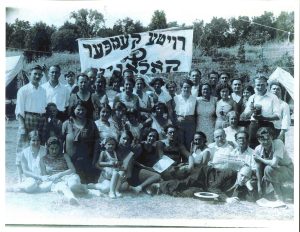 On May 9, I started to see for the first time. For the first 45 years of my life, I had been blind to human potential.
On May 9, I started to see for the first time. For the first 45 years of my life, I had been blind to human potential.
On that Shabbat morning, our synagogue held a bar and bat mitzvah celebration. Technically, at bar and bat mitzvah age, children are mandated with adult responsibilities. But in a larger sense, bar and bat mitzvah celebrations are a way of recognizing young adults as full members of the community.
This particular bar/bat mitzvah was different. The participants were much older, with some in their 50s. They were celebrating now because they had never done so in their youth. The participants were intellectually disabled. Years ago they had stood on the periphery, and their bar and bat mitzvahs were overlooked.
Throughout history, the disabled have been stigmatized. In Sparta, “deformed” babies were tossed off a mountain. Martin Luther believed disabled children were “changelings,” demonic beings in the form of a child. He advocated drowning the “changelings.” The Nazis, starting in 1939, initiated “Aktion T4,” a program to kill the disabled.
These negative attitudes continue to have an impact. Until recently, people with intellectually disabilities were often hidden away. The developmentally disabled were viewed as blemished, and people simply couldn’t see the person beyond the disability.
On that Shabbat morning, our view of the disabled changed. A powerful passage in the Book of Samuel states that “man sees only with his eyes, but God sees into the heart.” Humanity’s perspective is superficial, limited by what our eyes can see. But on that Shabbat, we were fitted with divine eyeglasses and saw the beauty of the human soul.
We saw the pride of these participants, who were waiting for this ceremony their entire lives. In their shy demeanour and gentle words, we could see the journey they had taken in search of dignity. And their faces radiated love. We all felt the connection between the participants and everyone in the room.
This celebration was more significant for the participants’ families. They had experienced the sting of exclusion as their siblings were isolated without friends, as their sons and daughters bounced from program to program. They were also waiting for the day that their sons, daughters, brothers and sisters would take their place in the community.
But the people most affected were the congregants. In standing ovation after standing ovation, community members opened their hearts to the participants. It was a family reunion. We, the community, were welcoming back the men and women we had long excluded.
On that Shabbat morning, our congregation looked past superficial disabilities, and appreciated the gift of community. And for a few short moments, we all wore divine eyeglasses.






